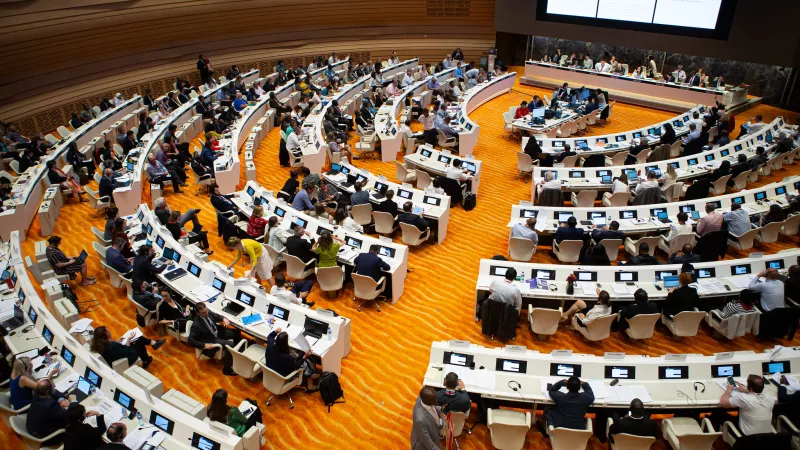
As every year, RIPESS will be present at the 113th International Labour Conference (ILC) in 2025, to be held from 2 to 14 June in Geneva. On this occasion, it will participate as an observer alongside its strategic allies, WIEGO and INSPIR, following up on discussions on the platform economy and the transition to the formal economy. This event, organised by the International Labour Organisation (ILO), brings together delegations of governments, employers and workers from the 187 Member States with the aim of establishing international standards and discussing key labour policies.
In this edition, the RIPESS delegation will be represented by Sandra Moreno, Executive Secretary of the organisation, and Akkanut Wantanasombut, Thai researcher, member of ASEC and expert in the digital solidarity economy. Their participation will focus on fundamental issues such as decent work in the platform economy, innovative approaches to addressing informality, the transition to formality, and the ILO’s tripartite contribution to the Second World Summit on Social Development.
Following its active participation in the ITC 2024, where it succeeded in placing the Social and Solidarity Economy (SSE) on the ILO’s agenda on care economies, as well as its participation in the ITC 2023, where it succeeded in including the contribution of SSE in the ILO’s Just Transition agenda, RIPESS reaffirms its commitment to strengthening the SSE as a key actor in social protection and the development of decent work. However, on the care economy agenda, significant challenges remain, such as resistance to recognising care as a public good and human right, as well as attempts at commodification of care services through public-private partnerships. At the ITC 2025, RIPESS will continue to promote the SSE as an essential pillar for advancing decent work and social justice.
This process of political advocacy and networking is part of RIPESS’ roadmap to promote the regional and intercontinental implementation of UN General Assembly resolutions 77/281 and 79/213, which aim to promote the Social and Solidarity Economy in the service of sustainable development, from an intersectional approach. It also builds on the 2022 ILO Resolution on decent work and the social and solidarity economy, which served as a major stepping stone towards the adoption of these two landmark UN resolutions on SSE.
We call on governments, United Nations agencies and financial institutions to support the recognition and strengthening of the SSE and its principles within global agendas and international financial mechanisms. Only through inclusive, participatory and intersectional policies—centred on people and the planet—will it be possible to move towards truly sustainable and equitable development models.
For more information on the CIT 2025 agenda, click here.


